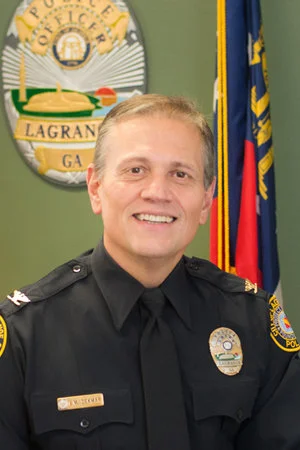Three years after Ferguson, criminal justice reform has spurred discussion about police, courts and incarceration. PAC leader Whitney Tymas sees prosecutors as the key to fundamental change. She explains how her organization tackles local elections and what they’re trying to accomplish.
Read MoreSince they began in the early 20th century, juvenile courts always treated kids differently – as people who were young enough to change. This began to change in the 1980s and 1990s when crime really spiked and we began putting some kids in adult courts and prisons – even giving life without parole and death penalties.Marsha Levick, deputy director and chief counsel for the Juvenile Law Center in Philadelphia, explains what changed.
Read MorePolice have endured harsh public scrutiny over use of force cases, but prosecutors have also taken heat for choosing not to pursue cases when civilians are shot by police.
Older, traditional prosecutorial professional organizations, such as the National District Attorneys Association, have fought against any changes. But one group, the Association of Prosecuting Attorneys, has taken a more open approach, arguing for the importance of prosecutorial independence and transparency.
David LaBahn is the CEO and president for the Association of Prosecuting Attorneys.
Read MoreGun violence kills thousands of Americans every year. It carries massive consequences in lives lost, injuries and medical treatment, but what about the economic cost – in jobs, businesses and community development? How can we measure the economic opportunity costs of gun violence?
Read MoreThe death penalty – once a constant in U.S. criminal justice – has actually declined for more than a decade. In the last few years, it’s fallen dramatically, with death sentences handed down and executions way off. Why? And what does it mean for the rest of the criminal justice system?
Read MoreThe Chicago Police Department has a big problem with misconduct against civilians – both now and in the past. How much does this cost the city financially? What do the patterns of misconduct tell us? And why has the city done almost nothing to address those patterns?
Read MorePolice killings of unarmed black men, stop-and-frisk policies and racially disproportionate prison populations have all been called symptoms of a broken criminal justice system.
Georgetown law professor and author Paul Butler says no – this is exactly the way the system was designed to work.
Read MoreMass incarceration in the U.S. created crisis conditions in prisons everywhere, and modern prison systems now have to address much more than just locking inmates up.
Read MoreKillings of unarmed black people by police have worsened historically troubled police-community relations. Until recently, little research existed that might help explain this or improve the situation. Social psychologists have created work that helps us understand why things go wrong in policing, what role race plays, and how we can do better.
Read MoreAfter riots erupted Ferguson in 2014, investigations revealed that the entire criminal justice system in St. Louis County – not just the police department – levied massive amounts of fines and fees on its poorest citizens in order to fund itself. It was a wake-up call, but one organization had been in place working on these issues for five years.
Read MoreThe federal government doesn't record anything when police shoot civilians, and there's no official national database to tell us how big or complex the problem is.
One newspaper journalist says he learned a lot requesting documents from more than 400 jurisdictions in his home state alone. In six years and more than 800 shootings, not one incident resulted in criminal charges.
Read MoreJames Comey wasn’t the nation’s embattled former FBI Director in 2002; he was the top federal prosecutor in Manhattan. It was around then that he gave a speech to a group of fellow attorneys -- men and women with impeccable courtroom records. He had a few... harsh words.
Read MoreWe hear it all the time: law enforcement needs to change for the 21st century. But what does "21st century policing" actually mean, and how would that police department be different than what we have now?
Read MoreIn the last 25 years, DNA has become a tool of unparalleled power, solving the coldest cases and overturning guilty verdicts based on faulty forensics, false confessions, and bad eyewitness identification. But a new process for analyzing DNA using computers means that now, DNA can be even more powerful, faster and more accurate.
Read MoreA chief of police has to lead officers toward a strong relationship with the communities they serve, but in the past, the same department may have participated in or enforced racial discrimination and injustice.
Read MoreBeing a federal judge is a lawyer’s dream job – lifetime tenure, sophisticated cases and a good salary, too. So why did a well-respected federal trial judge in Tennessee give it all up just six years in?
Automatic license plate readers – those cameras on police cars and light poles that capture plate numbers – have been in widespread use since the 1990s. But some argue regulations for how and how long police can use and store that information hasn’t kept up with the technology.
Read MoreAttorney General Jeff Sessions announced the end of federal efforts to fix forensic science in April, but not because the problems were solved. Why shut down the National Commission on Forensic Science now, just as better scientific standards were emerging? And what will it mean for wrongful convictions?
Read MoreThe Trump administration has promised a return to "tough on crime" criminal justice policies, including a recent memo that instructs federal prosecutors to reverse Obama era reforms meant to curb mandatory minimum sentences.
Read MoreDrone aircraft were developed as weapons of war, but now they have begun to find their way into domestic police work as well. Drones can help officers trace suspects or missing persons and could assess threats like toxic spills. But they pose a threat to privacy and criminal justice standards, too.
Read More



















